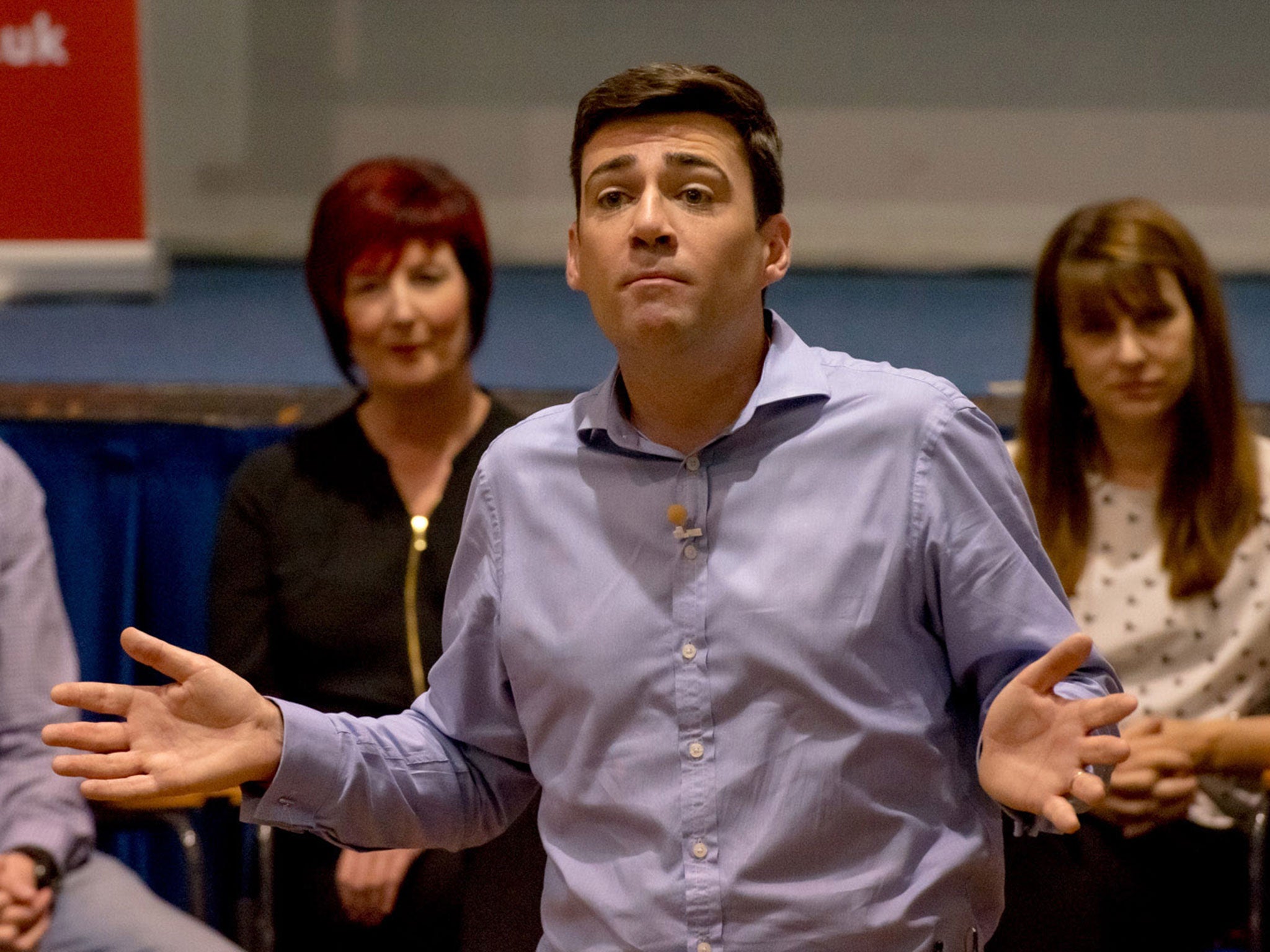Will Andy Burnham be given free rein by Jeremy Corbyn as Labour's shadow Home Secretary?
Home Affairs: As a Blairite Home Office minister, he adopted such hardline positions that he was nicknamed 'Flog 'em and Burnham'

Your support helps us to tell the story
From reproductive rights to climate change to Big Tech, The Independent is on the ground when the story is developing. Whether it's investigating the financials of Elon Musk's pro-Trump PAC or producing our latest documentary, 'The A Word', which shines a light on the American women fighting for reproductive rights, we know how important it is to parse out the facts from the messaging.
At such a critical moment in US history, we need reporters on the ground. Your donation allows us to keep sending journalists to speak to both sides of the story.
The Independent is trusted by Americans across the entire political spectrum. And unlike many other quality news outlets, we choose not to lock Americans out of our reporting and analysis with paywalls. We believe quality journalism should be available to everyone, paid for by those who can afford it.
Your support makes all the difference.If things had gone to plan, Andy Burnham would have been basking in plaudits next Tuesday for an inspirational call to arms in his first speech as leader to the Labour Party’s conference.
Instead, he will have to wait until the following day to make his bow as shadow Home Secretary before the activists who rejected him.
In one of many bizarre twists of an extraordinary chapter in Labour’s history, Burnham now takes charge of speaking for the Corbyn-led party on the sensitive issues of the refugee crisis, immigration and terrorism, as well as policing and criminal justice.
As a Blairite Home Office minister, he adopted such hardline positions on law and order that he was nicknamed “Flog ’em and Burnham” by the department. He enthusiastically led an ill-fated drive for identity cards – opposed by a small band of left-wingers including Corbyn – and argued for tougher sanctions for anti-social behaviour.
He has moved on politically since, but there is no disguising the gulf between Burnham and his new boss, which was illustrated during the leadership contest when they were questioned on immigration levels.
Corbyn replied that the nation should “celebrate” record migration figures, while Burnham said he understood voters’ concerns about the impact of immigration on their communities.
Their differing tones point to the persistent tensions within Labour ranks over how to respond to the public anxiety over immigration reflected in its recent loss of votes to Ukip.
The party failed to deliver a confident and clear message on the subject before the election, receiving the most headlines for the row when it produced mugs carrying the slogan “controls on immigration”.
Research for British Future, published this week, found that 44 per cent of voters, including one-third of Labour supporters, believed the party had said too little on immigration.
It will be crucial for Burnham and Corbyn to face up to this problem and reach an accommodation on immigration policy if their working relationship is not to prove short-lived.
They will also need to build on the strong lead set by the previous shadow Home Secretary, Yvette Cooper, over Britain’s response to the flow of refugees from Syria.
Although Corbyn’s leadership prospectus barely addressed law and order, his outright opposition to austerity presumably means Labour’s policy on police numbers, which is to cut them, but more slowly than the Tories, will be torn up.
Corbyn is also likely to order his party into all-out resistance to the planned “snooper’s charter” on the basis that it represents an unacceptable assault on civil liberties.
A more nuanced position has been taken by Burnham who has said that he would consider new anti-terror measures if they were “limited to what is strictly necessary”.
Corbyn’s potentially uncompromising stance on anti-terror legislation and his support for giving the vote to prisoners dismay Labour figures who fear getting on the wrong side of public opinion. One said: “People who live in Islington might care about this stuff, but I can tell you they are not worried about it in my constituency.”
Bringing such critics on board will be a major challenge for Corbyn – unless he leaves his defeated leadership rival authority to run home affairs as his personal fiefdom.
Join our commenting forum
Join thought-provoking conversations, follow other Independent readers and see their replies
Comments